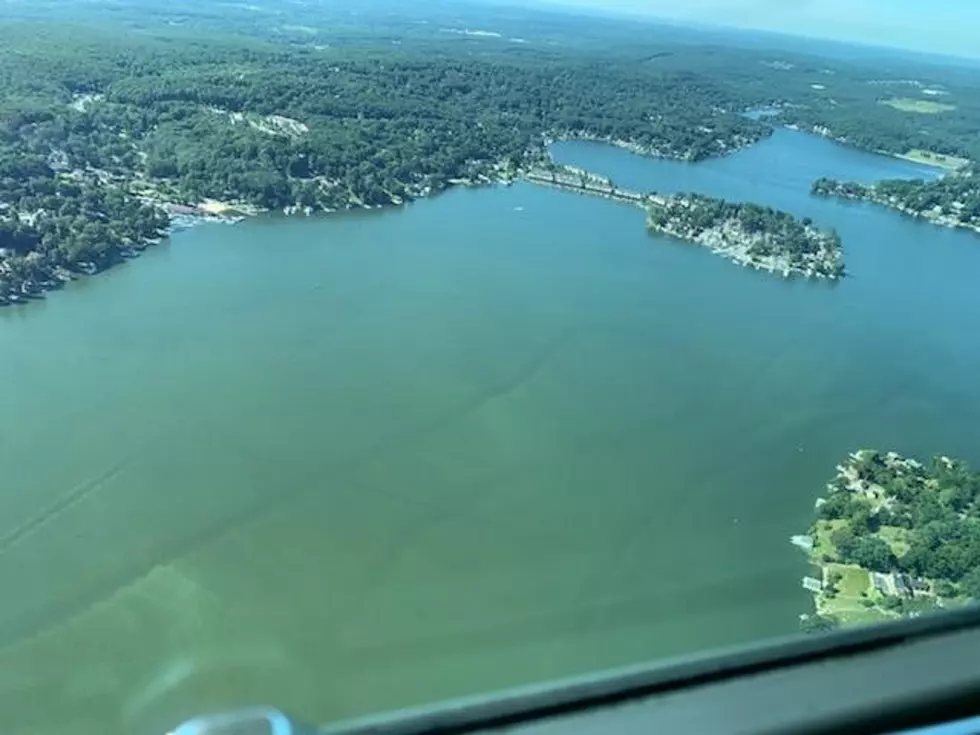
How Gov. Murphy hopes to keep harmful algae from infesting lakes again
This past summer, there were 70 suspected and 39 confirmed harmful algal blooms, in New Jersey lakes -- most notoriously in Lake Hopatcong, the largest lake in the state.
With boaters and swimmers told to avoid going into the water for most of the summer, local leaders around Lake Hopatcong estimate businesses lost at least $2 million , and the closure frustrated many local residents.
On Monday, Gov. Phil Murphy unveiled a three-pronged plan he said will address the problem through what is described as an enhanced program of science-based prevention, mitigation, study and response.
He announced during a meeting at Lake Hopatcong $13.5 million will go to communities across the Garden State to reduce and prevent future harmful algal blooms in New Jersey waterways, using both state and federal funds.
He said this will include “basically short-term projects that either prevent the HABs (harmful algal blooms) from forming, or mitigate them once they do."
Funds will also be used to help municipalities in the planning and preparing process.
"New Jersey will offer $10 million in principal forgiveness grants through the Clean Water State Revolving Fund for half of the cost, capped at $2 million, of sewer and stormwater upgrades to reduce the flow of nutrients to affected waterbodies," Murphy's office said in a statement about the program.
The governor said the funding could support changing communities over from septic to sewer systems, in order to reduce the discharge of nutrient-laden runoff into water-bodies that could cause algal blooms to form.
Murphy said state officials will also be working “with the absolute best cutting-edge science available to make sure that our decisions are as well informed as possible," he said.
The state Department of Environmental Protection will also be working on a harmful algal bloom warning system to let different communities in the state know what’s going on.
“We have to communicate better. We’re going to update our website. We’re going to have at least two if not three summits with local businesses, obviously stakeholders of all kind," Murphy said.
The governor said the DEP will work closely with individual municipalities if algal bloom problems arise.
“Our Shore brothers and sisters have given me good marks for standing up for the Shore economy, I want to stand up with equal force for the lake economy and lake realities," Murphy said.
The Gov. said everyone is hoping the plan will be effective, but no one knows for sure.
“We believe based on science that particularly in the face of climate change making the challenge even bigger, that we’re going to have the best chance of getting out in front of this, and we are all committed to thatm," he said.
The meeting included New Jersey U.S. Reps. Mikie Sherrill, Josh Gottheimer and Tom Malinowski and local state senators and Assembly representatives.
Exposure to harmful algal bloom can cause rashes, headaches, vomiting and abdominal pain.
After the initiative was announced, Jeff Tittel, the director of the New Jersey SierraCclub said in a statement that the governor's initiative "is not going to do anything to make our lakes better for next summer.
Instead, he said, Murphy "should have been working to clean up our lakes from the beginning of his administration.” He described the announcement as a press stunt and a "band aid for a massive bullet wound."
"The $13 million is just a drop in the bucket, and that bucket is still filled with algae water," Tittel said.
Chris Sturm, managing director of policy and water for the smart growth-focused New Jersey Future, called the funding important to help local communities, and said it's "great to see the state and federal government working together to solve this issue."
“Green infrastructure techniques will be a core component of any effort to resolve HABs," she said. "We look forward to DEP’s adoption of a new stormwater rule, expected next month, which requires new development to manage stormwater using green infrastructure. Communities can also consider implementing stormwater utilities to continue to fund infrastructure upgrades to reduce pollution from stormwater runoff.”
You can contact reporter David Matthau at David.Matthau@townsquaremedia.com
More from New Jersey 101.5:
More From New Jersey 101.5 FM









